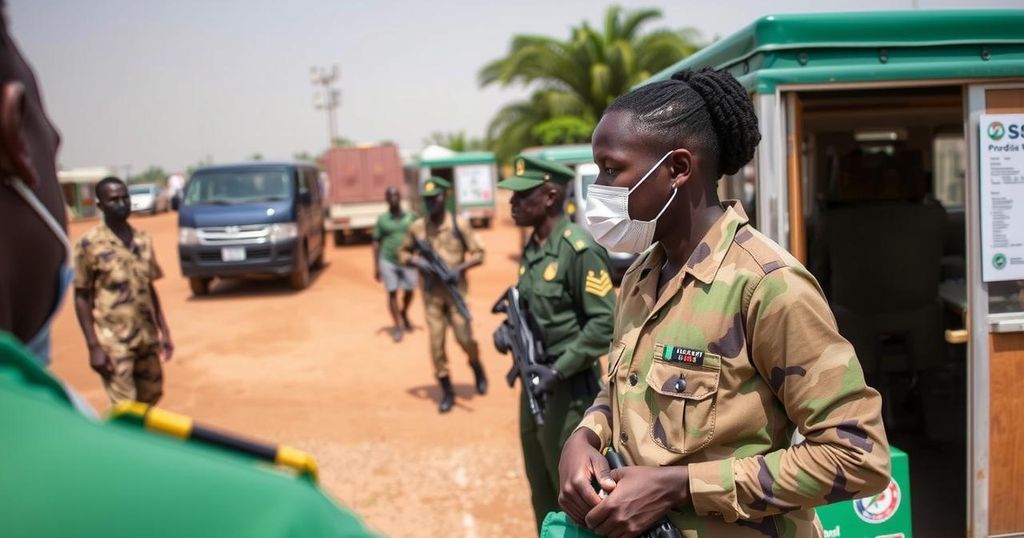The South Sudanese government’s recent removal of checkpoints along major highways has elicited varied reactions from the public. While some express optimism for reduced travel disruptions, others warn of increased vulnerability to attacks. The military assures continued patrol efforts, though concerns regarding low morale among soldiers and unpaid salaries persist, complicating the security landscape.
The Government of South Sudan has recently made headlines with its decision to eliminate checkpoints along significant highways, particularly the Juba-Bor route. This policy shift has generated a spectrum of responses from various stakeholders, including commuters, residents, and security analysts. While many individuals, especially those traveling frequently on this route, have welcomed the changes due to anticipated reductions in travel delays, there are prevailing concerns about the increased risks of armed attacks in the absence of established security posts.
The South Sudan People’s Defense Forces (SSPDF) confirmed that these checkpoints were deemed illegal and have been removed following a directive from President Salva Kiir. Commuters like Chol Chopa from Bor have expressed both gratitude for the diminished disruptions caused by the numerous roadblocks previously imposed, yet remain apprehensive about the potential exploitation of the newfound security void by bandits. “The absence could be dangerous as bandits could take advantage of the situation,” stated Mr. Chopa.
Conversely, some locals, including Victoria Yom Geu, perceive this change as an opportunity for improvement. Geu articulated that the removal of checkpoints could streamline traffic, mitigate illegal tolls, and enhance economic activities. “We see it as reducing insecurity and making trade more efficient,” she remarked. Similarly, Mach Anyang, a frequent driver of the Juba-Bor road, expressed approval for the removal of checkpoints, highlighting the pressures of extortion faced by drivers.
Despite the mixed perspectives, Major General Lul Ruai Koang, the spokesperson for the SSPDF, sought to reassure the populace by outlining ongoing surveillance measures. He affirmed that while illegal checkpoints have been dismantled, the military would continue patrolling to maintain security on the highways. “We are monitoring the roads and patrols will continue where needed,” he assured. However, challenges persist regarding government employees’ unpaid salaries, which may exacerbate morale issues within the ranks and lead to potential vulnerabilities in security as some soldiers abandon their posts due to financial distress.
As South Sudan grapples with the delicate interplay between enhancing road accessibility and ensuring public safety, it is evident that the populace remains divided on the ramifications of this new policy.
The decision to remove checkpoints in South Sudan arises in a context where road safety concerns are paramount due to previous extortionist practices by soldiers and prevalent insecurity attributed to armed groups along major highways. Checkpoints have often been a double-edged sword, serving supposedly to enhance security yet concurrently acting as points for illicit activities. President Salva Kiir’s order aims at dismantling illegal checkpoints throughout the country in an effort to improve mobility and trade; however, the impacts on public safety and security continue to spark debate among citizens and officials alike.
In summary, the recent removal of checkpoints along major routes in South Sudan has initiated a mixed response from affected individuals. While some rejoice at the prospect of improved travel conditions and reduced extortion, others express deep concerns regarding potential rises in armed attacks in the vacuum left by military withdrawals. The SSPDF reassures citizens through continued surveillance efforts; however, existing challenges, like governmental delays in salary payments, pose further risks to security operations. Thus, the repercussions of this policy change remain a pivotal topic for discourse among South Sudanese stakeholders.
Original Source: www.radiotamazuj.org






